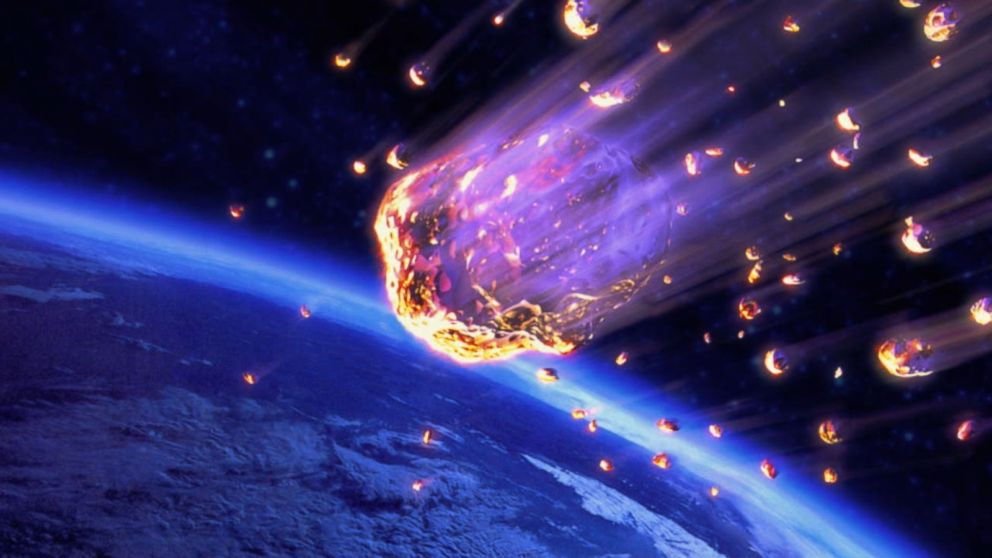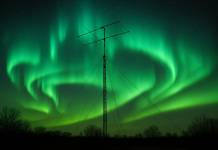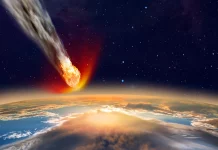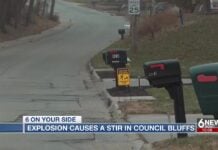Updated on: · 👉 Back to the Meteor & Fireball Hub. More eerie sounds from space and Solar System Oddities
Loud bangs, metallic rumbling, whistling in the dark… For centuries, witnesses of bright fireballs have reported strange sounds in the sky. Are meteors really noisy — or is something else going on?

Do meteors make weird noises when they fall?
During a witnessed fall, a bright meteor or fireball puts on an incredible light show — but many observers also report whistling, popping, booming, rumbling, humming, or roaring overhead.
These sounds are often linked to the meteor’s extreme velocity. As it plows through the atmosphere, it can generate shock waves and even sonic booms strong enough to rattle windows and shake the ground. In some rare cases, witnesses even describe “electrophonic sounds” — crackles and hisses heard at the same time as the fireball is seen, possibly created by interactions between the meteor’s ionized trail and local electric fields.
The video below features sounds attributed to the Perseid meteors, captured by U.S. Air Force Space Surveillance Radar in Texas:
What Science Says About Meteor Sounds
Recent research has finally confirmed what witnesses have described for centuries: fireballs don’t just create spectacular optical displays — they produce physical sound, shockwaves and low-frequency radio emissions.
Scientists from the University of New Mexico analyzed more than 11,000 hours of sky data from the Long Wavelength Array and discovered that bright fireballs emit a previously unknown, long-duration low-frequency radio pulse as their plasma trails cool.
These emissions match meteor trajectories in both space and time, providing the first solid evidence that large meteors generate electromagnetic bursts, infrasonic waves and atmospheric vibrations.
Combined with known sonic booms and shockwaves, this means many reported strange sounds in the sky — roaring, hissing, whistling, metal-like buzzing, thunder-like rumbling — are fully consistent with meteor physics.
Witness reports: how meteor falls sound
Below is a compilation of historic ear-witness accounts from confirmed meteorite falls. The letters and numbers in brackets describe the meteorite type recovered after the fireball broke apart:
- Adzhi-Bogdo (LL3–6): “crackling sounds like gunshots.”
- Allegan (H5): “a cannon-like explosion followed by a hissing sound similar to an engine blowing off steam.”
- Cabin Creek (IIIA): “an unusually loud whizzing metal sound.”
- Crumlin (L5): “a noise like thunder or the rolling of drums.”
- Felix (CO3): “a loud thunder-like rumbling noise.”
- Hatford (1628): “a hizzing noise like flying of bullets.”
- Honolulu (L5): “firing cannons.”
- Holbrook (L6): “distant thunder, cannon booming… rumbling of a rapidly driven farm wagon on a rough road.”
- Karakol (LL6): “whistle.”
- Magombedze (H6): “three loud detonation sounds and an approaching aeroplane-like noise.”
- Mooresfort (H5): “sounds like thunder.”
- Noblesville (H4): “whirring sound, low-pitched whistle.”
- Rowton (IIIA): “a hissing and then a rumbling noise.”
- St. Robert (H5): “electrophonic sounds.”
- Campos Sales (L4): “a loud buzzing noise, a sonic boom, and a sound of bullets.”
- Juancheng (H5): “roaring sound during 2 to 3 minutes.”
- Ashdon (L6): “a loud sissing noise as if an aeroplane was overhead.”
- Baldwyn (L6): “humming noise.”
- Binningup (H5): “whistling noise.”
- Middlesbrough (L6): “whizzing or rushing noise.”
- Peckelsheim (DIO): “a whining noise.”
- Quesa (IRANOM): “approaching storm noise.”
- Rampurhat (LL): “a roaring noise.”
- Ruhobobo (L6): “jet aeroplane noise.”
- Sharps (H3): “a whirring noise.”
- Trebbin (LL6): “loud hissing noise.”
- Warrenton (CO3): “a whistling noise.”
- Wold Cottage (L6): “various noises like pistols or distant guns at sea, and a hissing noise passing through the air.”
Link to the “Strange Sounds in the Sky” phenomenon
Reading all these descriptions — thunder, cannon fire, airplane hum, roaring, whistling, buzzing — it’s easy to see why many people connect meteor activity with modern reports of Strange Sounds in the Sky and skyquakes.
Some mysterious booms and skyquakes are eventually traced back to fireballs or bolides exploding high in the atmosphere. Others remain unexplained — but meteors are clearly one piece of the cosmic noise puzzle.
For even stranger audio, listen to sounds recorded from space and cosmic radio sources. The universe is anything but silent.
FAQ: Meteor Noises and Sky Sounds
Do meteors really make sound?
Yes, large meteors can produce audible sound. As they travel at hypersonic speeds, they generate powerful shock waves that can create sonic booms, rumbles, and explosions heard at the ground. Some witnesses also report crackling or hissing noises that may be electromagnetic in nature.
Why do some people hear a meteor before they expect to?
In rare cases, observers report hearing a meteor at almost the same time they see it, which shouldn’t happen with normal sound travel. These are known as electrophonic sounds, possibly caused when the meteor’s ionized trail interacts with local electric fields, inducing nearby objects (glasses, hair, foliage) to vibrate and create audible noise.
Can meteor booms damage buildings?
Very energetic fireballs — like the Chelyabinsk event — can generate shock waves strong enough to shatter windows and cause minor structural damage. Most meteor booms, however, are heard as thunder-like rumbles or distant explosions without serious impact.
Are strange sky sounds always caused by meteors?
No. While meteors and fireballs can explain some loud booms and rumbles, other sky sounds may be linked to atmospheric ducting, industrial noise, aircraft, earthquakes, or unknown sources. Meteors are just one chapter in the larger story of mysterious sky sounds.













[…] Here a compilation of different sounds meteor produce when they fall down to Earth. […]
[…] Did you know that meteorites are noisy when they disintegrate in our atmosphere? […]
[…] Witnesses reported a large ball of fire falling down to Earth with an angle of about 45 degrees. In Palotina and Alton, two other cities in the same region, the fire department received several calls of residents reporting the fireball exploding in a large bang. […]
[…] a daylight meteor is considered to be quite rare, due to the energy required to light up the sky when competing with […]
[…] So did you hear any loud booms or strange noises from the sky? They could be related to this incredible high meteor activity! […]
[…] has to be larger than a football to produce a sonic boom. Moreover, the larger the object the louder the boom. Larger objects make two distinct booms […]
[…] you might know, roaring sounds have been attributed to meteors in the past. Moreover, the Lyrids meteor shower has started mid-April 2015. So a meteor […]
[…] Discover the mysterious sounds of meteors! […]
[…] So it seems there would be a good chance that pieces of this meteor are going to be found. Did you also hear it? […]
[…] me, the meteor sonic boom seems to be the most plausible source for this still unexplained explosion. What do you […]
[…] What’s the weirdest is the fact that Conners’ home was the only building in the area that was damaged! Are we getting now booming ice meteor showers? […]
[…] According to witnesses, no booms were heard. But sometimes disintegrating balls of fire create weird noises. […]
[…] A boom could be heard seconds after it passed, which could indicate that a large meteor disintegrated in mid-air or made contact with land. It is well known that meteors go sonic. […]
[…] These meteor strange sounds were produced by terrestrial radio signal bouncing off the ionized trail of the fireball. It is actually a method to detect called “forward scatter radar. […]
[…] you hear a loud boom coming from the sky and feel a rumble under your feet? These may be created by a meteor of fireball explosion. Here a compilation of the most impressive meteor broke-up of January 2014. […]
[…] sightings and fireball explosions are always impressive phenomena. If you add booming sounds and rattling, than it becomes terrifying. And this is exactly what happened last Sunday afternoon around Lake […]
[…] evening, a fireball was witnessed in many Florida’s counties. As previously presented here, meteorites can produce sonic booms while they enter atmosphere. So could some booms heard in NCF […]
[…] already introduced that strange sounds can be linked to meteorite falls. Now I will explain how the meteor infrasound is created. Any shock generating mechanism in the […]
[…] 19 2013, so during the same night. What a coincidence, hey? In a previous posts I demonstrated that meteors are sometimes creating weird noises such as sonic booms or shock waves generated by meteorite fragmentation when entering Earth’s […]